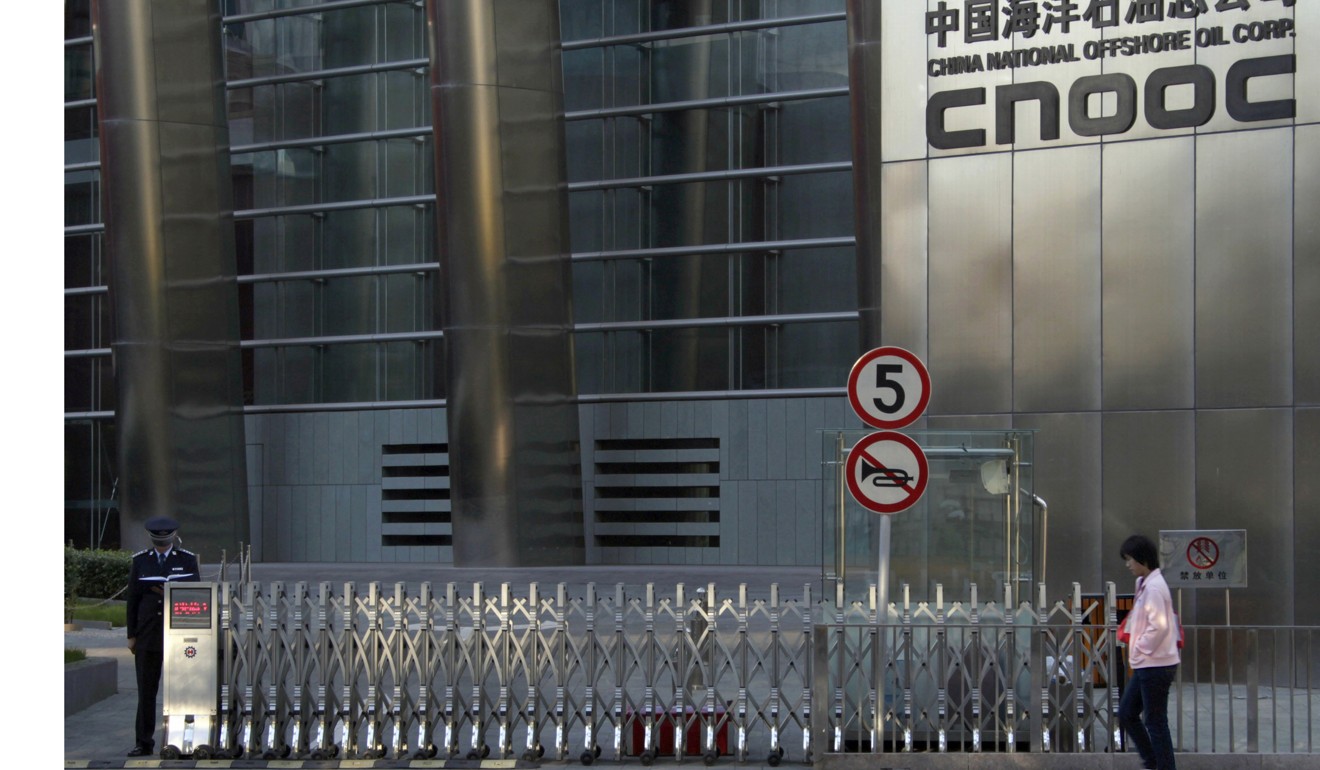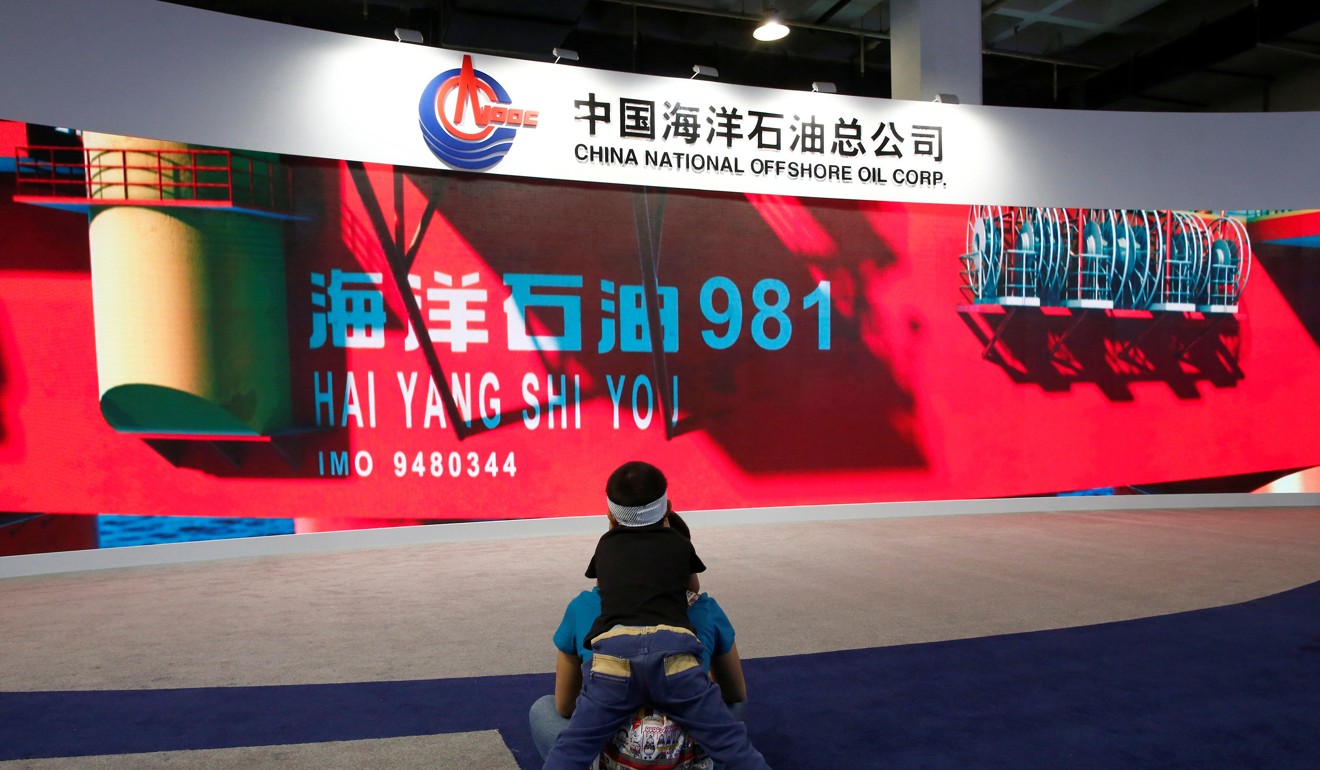
Ex-CNOOC legal executive sues firm for share options practice
Retired former head of legal department at CNOOC claimed in a writ that the firm had breached terms of various option schemes by failing to approve his requests to exercise the options
Zhao Liguo, a 32-year veteran who retired from the nation’s dominant offshore oil and gas producer two years ago when he was 62, claimed in a court writ that the firm had breached terms of its various option schemes, by failing to approve his requests to exercise the options.
“The defendant [CNOOC] had wrongfully detained and / or converted the share option certificates and exercise notice in respect of the share options since March 12, 2001 ... the plaintiff [Zhao] thereby suffered loss and damage being the difference between the subscription price of each of the share option that [he] would have validly exercised,” the writ claimed.
It seeks unspecified damages for the alleged failure to let Zhao exercise the options, and for the court to declare that Zhao had validly exercised the options by giving notices in the past two years.
In a statement emailed to the Post, CNOOC said “it has received the related statement of claim and will proactively cope with this matter.”
Zhao was general manager of the Hong Kong and New York-listed firm’s legal department between 2000 and 2009and subsequently was general counsel until June 2015 when he retired.
Despite his role as a member of senior management, he was never involved in the firm’s various option schemes’ formulation and implementation and “had no access to the terms” of the schemes, it was claimed.

Back in 2001, when Zhao was granted his first share option, it was alleged that he had asked the then general counsel and company secretary Cao Yunshi for a copy of the letter he signed for accepting the option, but Cao refused.
It was also claimed that in “each and every occasion” when Zhao was granted further share options until 2010, he was asked to sign the offer letters but was not given “sufficient time” to read their content, and the letters were collected immediately after he signed them.
Zhao was not given a copy of the letters and no share certificate or exercise notice has ever been issued to him, it was claimed.
About a week before his retirement, it was claimed that Zhao had requested CNOOC by a written notice to approve his exercising the options, which was followed by an email a year later with the same request, to no avail.
The defendant [CNOOC] had wrongfully detained and / or converted the share option certificates and exercise notice in respect of the share options since March 12, 2001
According to CNOOC’s annual report, except for a pre-initial public offering share option scheme in 2001, all share options granted carry the term that one third of the options granted can be exercised on the first, second and third anniversaries of the date of grant, so that all are exercisable by the third anniversary.
They expire 10 years after the date of grant, and terms are in line with international practice.
Jerry Chang, managing director at international executive search firm Barons & Co, said share options of multinational firms typically are vested over three to five years.
According to its annual filings to the US Securities and Exchange Commission, CNOOC’s outstanding option shares grew from 169 million at the end of 2005 to as many as 474 million at the end of 2010, before gradually falling to 185 million at the end of March this year.
Despite the 10-fold surge in share prices between 2002 and 2011 to around HK$20 – disrupted by a sharp fall and recovery during the global financial crisis in 2008 and 2009 – the number of option shares exercised was tiny.
A total of 4.9 million share options were exercised in 2005, 2006 and 2008 – the only three years since its listing in 2001 in which it reported that any were exercised, minuscule compared to the options granted.

Francis Lun Sheung-nim, chief executive of GEO Securities, said that although Zhao’s claims sound plausible given that relatively few of CNOOC’s share options were exercised over the years, Zhao’s lack of written documentation to prove he was ever granted the options means he might have a hard time arguing his case in court.
Most large state-owned enterprises have seen the pay packages of their top echelons cut substantially in recent years, after President Xi Jinping (習近平) called for an adjustment to the “overly high income” of state firms’ managers when he chaired a meeting of the Communist Party’s Central Leading Group for Comprehensively Deepening Reform in August 2014.
As a so-called “red chip” – Hong Kong-registered mainland Chinese firms – CNOOC was one of a handful of state-backed firms with compensation packages that years ago were much higher than fellow “H-shares” – mainland-registered state firms, as part of state enterprise reforms that included the adoption of market-oriented employees compensation system.
For example, CNOOC’s former chairman Fu Chengyu had earned as much as HK$12 million a year when he was at the helm, closer to that earned by his counterparts in international oil firms, while his counterparts at H shares PetroChina and Sinopec earn less than one-tenth.
But Fu revealed in 2009 that all of CNOOC’s top management had “donated” their entire compensation to the parent company since their pay packages were “too high”, and were not in line with the country’s “national characteristics” in view of the low incomes earned by the vast majority of their subordinates.
The parent company would then give them back an undisclosed salary and bonus for the year as their real compensation.
Before Fu’s public revelation, it was an unspoken practice privately admitted by red-chip bosses that they could only take home a portion of their official “internationally aligned” pay packages although their actual compensation at both the listed and the parent companies were never made public.
Zhao’s court case is a rare attempt to use Hong Kong’s legal system to challenge the unwritten compensation arrangement of Chinese state-backed enterprises’ top managers.

